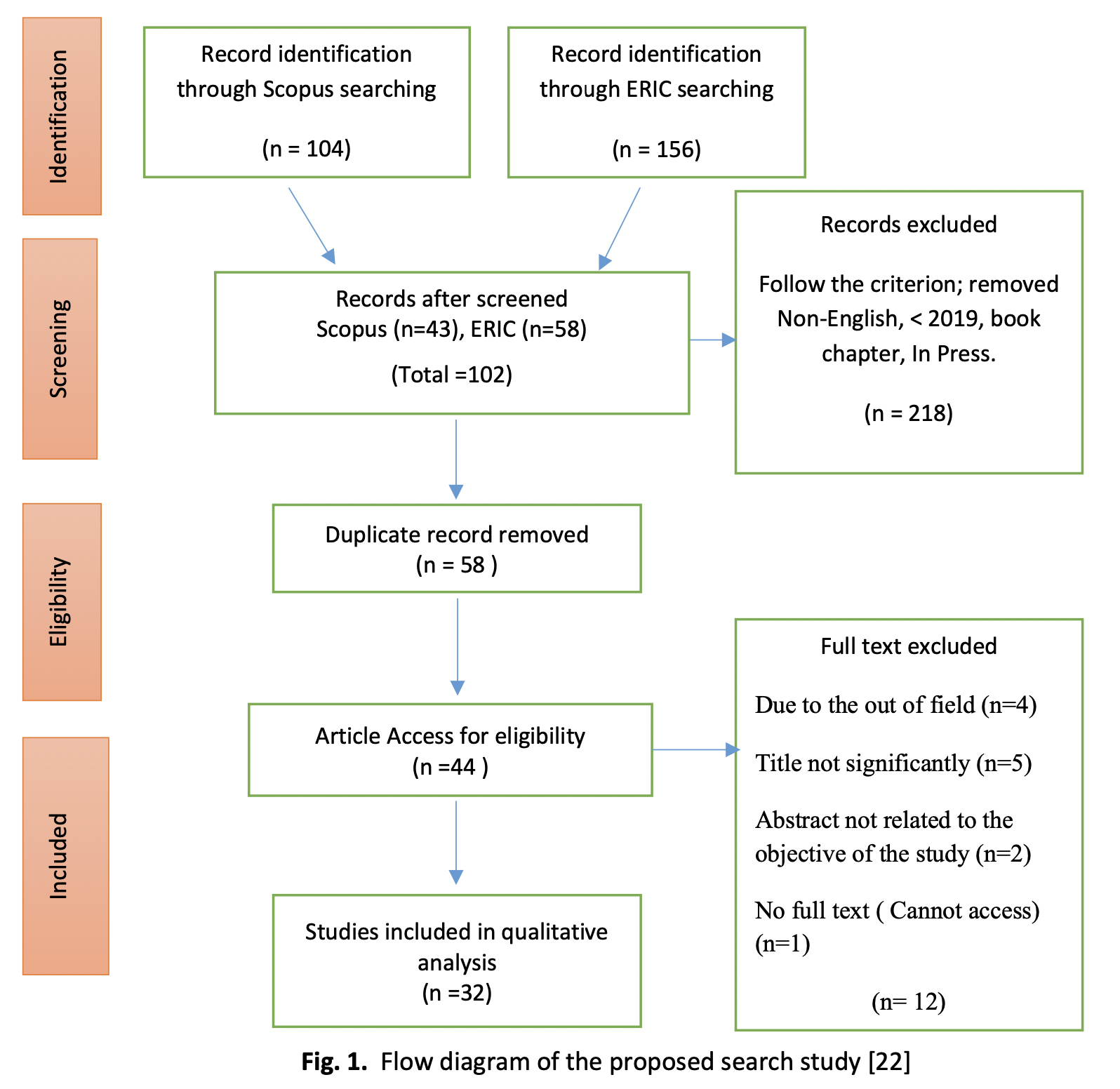Digital Technologies in Language Education: A Comprehensive Review and Analysis
DOI:
https://doi.org/10.37934/araset.41.1.90102Keywords:
Digital, Technology, Digital Technologies, Language Education, CompetencyAbstract
This systematic literature review examines the role and efficacy of digital storytelling (DST), the robot-DST strategy, and the normalization of computer-assisted language learning (CALL) in language education. The review is based on a range of studies published between 2019 and 2023 and follows the PRISMA approach for systematic reviews and meta-analysis. The analysis includes the evaluation of training, validation, and testing stages, with the search employing the keywords "educational technologies" to identify relevant articles. The review's findings highlight the potential of digital storytelling as a multimodal approach to language education. However, the limitations of traditional DST methods are also scrutinized. To address these limitations, the study proposes a robot-based DST approach, robot-DST, to enhance student engagement and promote interaction. The effectiveness of this approach is evaluated through a quasi-experimental study conducted in an English as a Foreign Language (EFL) course, comparing it with the conventional animation-based DST approach. Furthermore, the review explores the normalization of computer-assisted language learning (CALL) and the evolving communicative competencies needed for the digital generation. It also delves into the role of digital technology in reshaping academic journals and emphasizes the importance of integrating digital tools in reading instruction within university curricula. While acknowledging the existing inadequacies in current methodologies, the study serves as an inspiration for future researchers. It provides a solid foundation for developing and implementing innovative solutions in language education. In conclusion, this systematic literature review sheds light on the transformative role of digital technologies in language education. It highlights the potential of digital storytelling, introduces the robot-DST strategy as an alternative approach, and explores the normalization of CALL. The review emphasizes the need for integrating digital tools and fostering evolving communicative competencies to meet the demands of the digital generation. It also underscores the importance of further research and innovation in developing effective solutions for language education.
Downloads





























